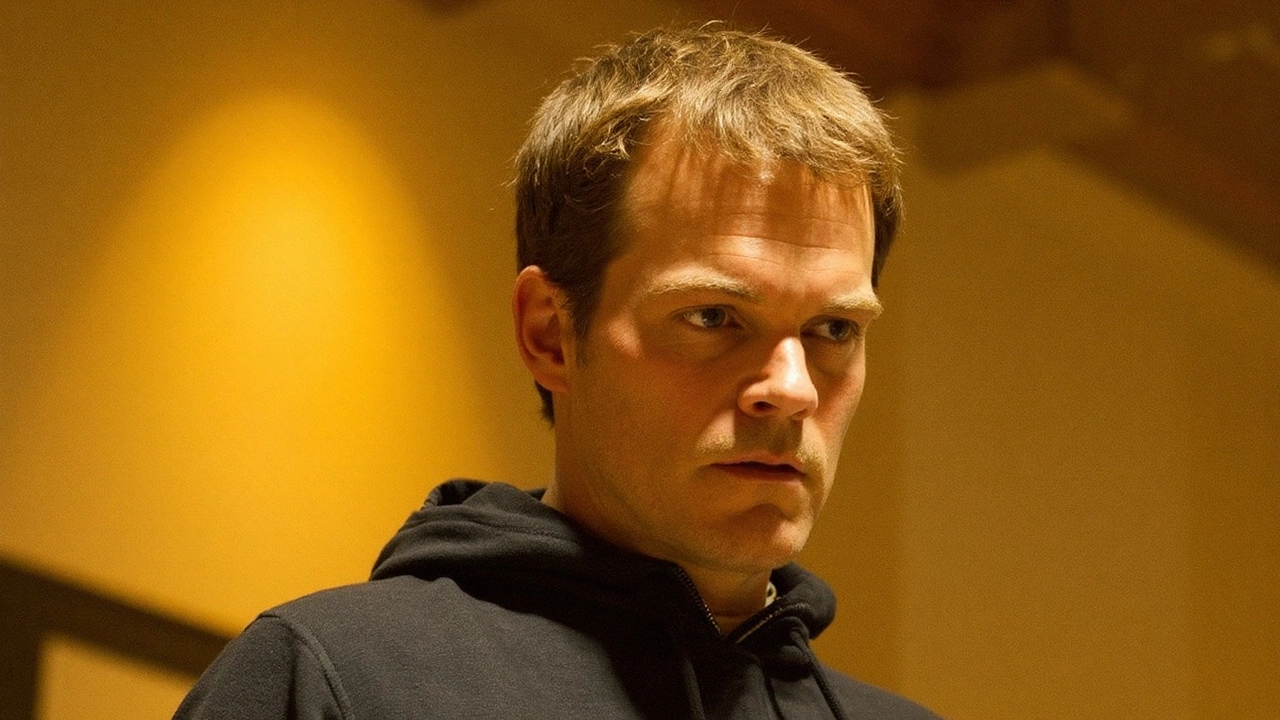A finale that reframes Dexter
A character built on iron composure finally blinked. In the last five minutes of Dexter: Resurrection, Dexter Morgan shows a vulnerability the franchise rarely lets him reveal. Cornered by Leon Prater, a billionaire who collects serial killers like trophies, Dexter faces a choice no code can tidy up. Prater threatens to kill Harrison in front of his father, forcing Dexter to relive someone else’s origin story of trauma. Dexter doesn’t negotiate. He offers his own life instead. It’s sudden, unplanned, and telling.
This is a hard pivot from the man who has spent years justifying his violence as controlled, necessary, and quarantined from the people he loves. Dexter’s “Dark Passenger” has always been the part that acts, while the father, the boyfriend, the neighbor smiles and keeps up appearances. In this moment, the roles flip. The parent moves first. The instinct to protect outruns the urge to survive. You feel it in how fast he answers Prater. No chess move. No lecture. Just a father choosing his son.
The line that follows lands even heavier: Dexter tells Harrison, "I'm sorry I couldn't give you the protection that you needed." On the surface, it’s remorse. Underneath, it’s a coded reminder about the syringe of opioid Dexter pressed into Harrison’s hands earlier. That earlier decision was cold-blooded in its planning and warm-blooded in its purpose. If danger came, Harrison had a way out. The show doesn’t frame this as clever trickery. It reads as a protective measure from a man who knows how violence works and refuses to pretend otherwise.
Watch how the sequence is staged. The room closes in. The camera lingers on faces and hands, not on hardware and gore. Silence stretches, then snaps. Dexter’s offer isn’t a grand speech. It’s quick, almost quiet, like a reflex. That’s what makes it sting. He’s not performing for Prater, or for us. He’s revealing what sits under the code when the mask gets ripped off. The father wins.
When Dexter survives and kills Prater, the shift doesn’t evaporate. He carries it through the aftermath. The apology still echoes. The practical side of him does, too. He knows a dead monster’s assets can save future victims, so he combs through Prater’s digital spoils and pulls out a stack of leads. It’s part contrition, part commitment. He isn’t running from what he is. He’s deciding what it’s for.
What the last five minutes set in motion
Then comes the moment that will be argued about for months: Dexter looks straight into the camera and says, "I'm exactly who I need to be. Exactly who you want me to be." The fourth wall almost never breaks in this world. His voice has guided us for years, but he has always spoken around us, not to us. This time he makes eye contact. It shifts the show’s deal with the audience. He’s not only accepting the role of killer of killers; he’s acknowledging the viewer who has watched, judged, and—often—rooted for him. It’s confession and challenge in two sentences.
That stare-down matters because it catches Dexter at a moment of self-acceptance rather than self-justification. He isn’t apologizing for the code. He’s not hiding behind it either. He’s stating a boundary: this is who he is and how he intends to use it. For a character who’s spent seasons trying on normal life like a costume, the frankness feels different. He has stopped chasing a fantasy of being ordinary and started owning the work he believes only he can do.
His next steps underline that point. He drags Prater’s body to the water and does what he has always done, then turns back to the hard drive full of secrets. Those files don’t just list names. They sketch a map of a subculture—collectors, enablers, hunters hiding in plain sight. One case stands out by name: the mysterious "Rapunzel." The label is theatrical and unsettling, and it hints at a signature that someone, somewhere, has been refining in the shadows. With Prater gone, the list is unclaimed. Dexter now holds a key to a door he didn’t even know existed when the episode began.
For season two, that creates a sturdy engine. Instead of stumbling onto predators, Dexter can hunt with purpose. He has patterns to study, archives to raid, and a network to unspool. The billionaire’s catalog gives him more than targets; it gives him context and reach. That widens the world of the show without losing focus. It also raises a fresh risk: when you inherit a monster’s files, you inherit his enemies. People who dealt with Prater will feel the void. Some will come looking.
All of this plays against the most personal change: Dexter’s relationship with Harrison. The near-execution redraws their bond. Harrison doesn’t just see a methodical man in a blood-spatter apron. He sees a parent who will step into the line of fire, no questions asked. The apology about "protection" hits on two levels. Dexter is admitting he misjudged the threat. He’s also trusting his son with the truth about why he prepared that syringe. It’s an uncomfortable kind of love—bracing, unsentimental, and real.
There’s a price tag attached to that choice. In a different show, a father’s sacrifice might be the neat end of the story. Here, it’s the beginning of consequences. Harrison now carries knowledge and tools he didn’t have before. He has seen what being close to Dexter costs. That can draw him in or push him away. The finale doesn’t force an answer. It leaves space for a season-long negotiation: how do you keep someone safe without turning them into you?
The moral framing is sharper than it first appears. Dexter’s offer to die could be read as absolution, a single noble act to cancel out years of blood. The story never suggests that. It shows something simpler and more human: a man whose first impulse, in a corner, is to protect his kid. That doesn’t make him a hero. It makes him a father who happens to be very good at a terrible thing. The distinction matters because it holds the tension the series runs on—justice through violence, love through control, empathy inside a ritual of death.
The fourth-wall line works on that axis, too. "Exactly who you want me to be" is not only fan service. It’s a dare. It asks whether we’re here for the righteous kills, the puzzle-box plots, the father-son saga, or all of it at once. It also hints that Dexter understands the danger of becoming a mascot for vengeance. Season two can lean into that meta thread by pairing him with antagonists who reflect his methods back at him. The "Rapunzel" case, with its storybook name and implied theatrics, sounds like a mirror waiting to be held up.
The craft choices in those closing minutes underline the thematic swing. The sound drops out when it matters. The cuts slow. The camera lets discomfort sit. You get the sense the episode wants you to live in the offer, not the aftermath. Even the clean-up feels quieter than usual. That restraint gives the final stare into the lens more bite. It doesn’t arrive as a gimmick. It lands as punctuation.
By the time the credits roll, Dexter hasn’t become a different person. He’s stripped away the parts that were pretending. He still hunts killers. He still keeps secrets. Now he does it without the pretense that he can tuck the Dark Passenger into a drawer and play house forever. He has chosen the mission and the person he’s doing it for. He’s claimed a new map, a new antagonist list, and a clear line he won’t cross when it comes to Harrison. That’s not redemption. It’s clarity. And for a character who has spent his life in half-light, that feels like the boldest move yet.



